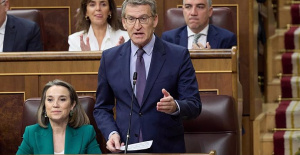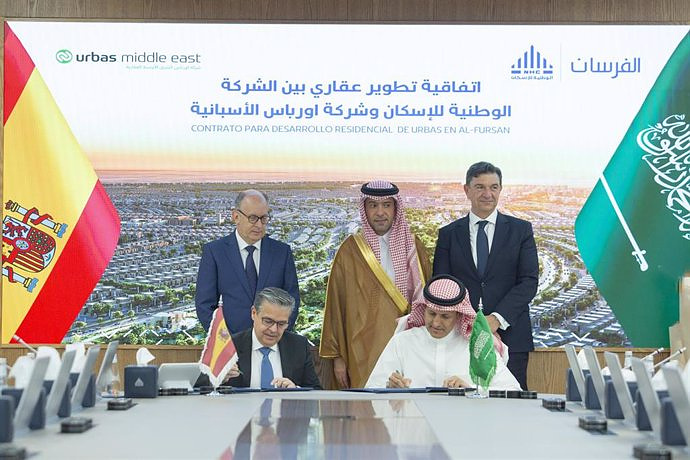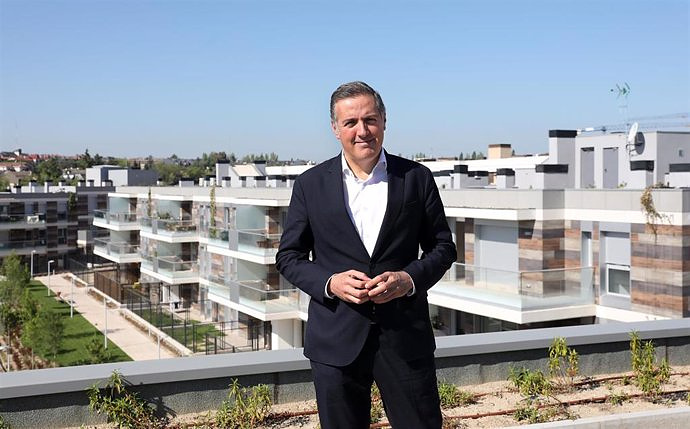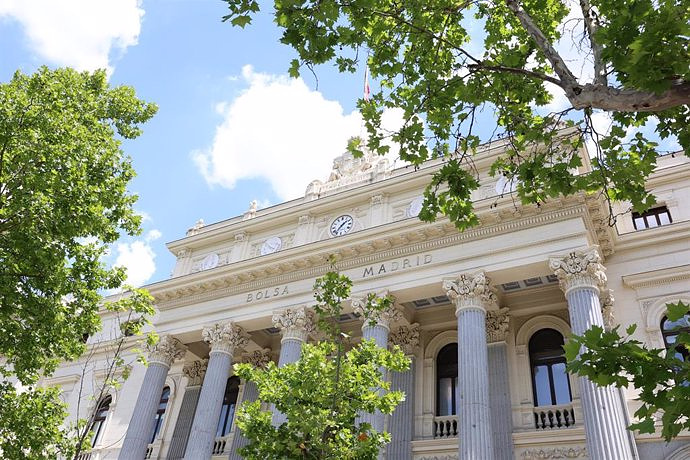It also condemns the father of the former Vice President of the Government and former leader of United We Can
MADRID, 18 Ene. (EUROPA PRESS) -
The Court of First Instance and Instruction Number 3 of Zamora has dismissed the lawsuit filed by the father of the former Vice President of the Government and former leader of United We Can, Pablo Iglesias, against the deputy of the PP Cayetana Álvarez de Toledo, from whom he claimed compensation of 18,000 euros for calling him a terrorist in the media, at the same time that he has been sentenced to pay costs.
Iglesias's father sued Álvarez de Toledo for "illegitimate interference" in his rights to honor, personal and family privacy, and his own image for describing him as a terrorist in the press, "with clear knowledge of his lack of veracity ", reason for which he claimed damages.
"Iglesias' father says that he limited himself to distributing propaganda for a demonstration. It was in that demonstration that the policemen were killed. But regardless of the activity that he carried out in the terrorist organization, he was a member of that terrorist organization," he said in an interview given in 2020.
The 'popular' deputy opposed that it was the former leader of United We Can who referred to her father as a member of the Frap, even calling him a "frapero", thus taking pride in his militancy.
The Prosecutor's Office, for its part, requested the dismissal of the lawsuit, arguing that the right to freedom of expression should prevail over the right to honor, according to the sentence itself, to which Europa Press has had access.
Judge Guillerma Mongil frames the case in a conflict between both rights to recall that "the right to honor, according to reiterated jurisprudence, is limited by freedom of expression and information."
Mongil analyzes the interview to which the dispute is limited to determine that it does not state that the father of Iglesias had actively participated in the murders, nor in violent acts, "but that the defendant was part of the Profrap Committee that claimed responsibility for such actions."
It also highlights that "the political criticism" of Álvarez de Toledo "started from an initial factual basis" which were the statements of Iglesias and his father "in the interviews or articles published by them in the press."
In this sense, it points out that "the interview contains expressions or opinions based on the statements of the interested parties", "as well as on the factual data on which it is based to reach said conclusion".
However, it understands that "it can only be concluded that the defendant intended to state that she did not agree with violence and terrorism or with political formations that used said means or advocated their use."
In his opinion, Álvarez de Toledo limited himself to "concluding by way of a syllogism that the Frap was a terrorist organization because the victims of said formation were considered and classified by the Government as terrorist victims, so if the defendant belonged to the Frap, or contributed to its formation as part of the Fro Frap committee -the defendant concluded-, Pablo Iglesias is the son of a terrorist".
Thus, it resolves that "the right to freedom of expression must prevail over the right to honor because it is essential as a guarantee for the formation of a free public opinion, essential for the political pluralism that the democratic principle demands"
Mongil is based on the fact that "the expressions, opinions or value judgments issued had an undoubted general interest, referring to the historical and political past of our country, and an undoubted factual basis in the terms referred to."
And in that Álvarez de Toledo did not use "unjustified or unnecessary expressions to convey the critical purpose, even when this could annoy, disturb or upset the person against whom it is directed."
To this he adds that "it is obvious" that both "have an undoubted public relevance", for which reason "it is necessary to understand the expressions expressed within the general context and climate of political discussion in which it takes place, as well as the dialectical and political confrontation between the interveners".

 Exploring Cardano: Inner Workings and Advantages of this Cryptocurrency
Exploring Cardano: Inner Workings and Advantages of this Cryptocurrency Seville.- Economy.- Innova.- STSA inaugurates its new painting and sealing hangar in San Pablo, for 18 million
Seville.- Economy.- Innova.- STSA inaugurates its new painting and sealing hangar in San Pablo, for 18 million Innova.- More than 300 volunteers join the Andalucía Compromiso Digital network in one month to facilitate access to ICT
Innova.- More than 300 volunteers join the Andalucía Compromiso Digital network in one month to facilitate access to ICT Innova.-AMP.- Ayesa acquires 51% of Sadiel, which will create new technological engineering products and expand markets
Innova.-AMP.- Ayesa acquires 51% of Sadiel, which will create new technological engineering products and expand markets The plane with the mortal remains of the corporal who died in Poland lands in Torrejón de Ardoz (Madrid)
The plane with the mortal remains of the corporal who died in Poland lands in Torrejón de Ardoz (Madrid) Feijóo accuses Sánchez of seeking to "victimize" himself, "polarize" and mobilize the PSOE before Catalans and Europeans
Feijóo accuses Sánchez of seeking to "victimize" himself, "polarize" and mobilize the PSOE before Catalans and Europeans Venice begins charging 5 euros for tourists who want to access its historic center starting this Thursday
Venice begins charging 5 euros for tourists who want to access its historic center starting this Thursday Industrial inflation deepens its fall in March to 8.2% and accumulates 13 months of declines
Industrial inflation deepens its fall in March to 8.2% and accumulates 13 months of declines How Blockchain in being used to shape the future
How Blockchain in being used to shape the future Not just BTC and ETH: Here Are Some More Interesting Coins Worth Focusing on
Not just BTC and ETH: Here Are Some More Interesting Coins Worth Focusing on Retrópolis brings the golden age of video games and computing to the UPV
Retrópolis brings the golden age of video games and computing to the UPV Looking for video games that value the neighborhoods of Valencia
Looking for video games that value the neighborhoods of Valencia UPV researchers improve the efficiency of air conditioning systems using a geothermal heat pump
UPV researchers improve the efficiency of air conditioning systems using a geothermal heat pump València is committed to citiverse and smart tourism to be "the reference technological hub of the Mediterranean"
València is committed to citiverse and smart tourism to be "the reference technological hub of the Mediterranean" A million people demonstrate in France against Macron's pension reform
A million people demonstrate in France against Macron's pension reform Russia launches several missiles against "critical infrastructure" in the city of Zaporizhia
Russia launches several missiles against "critical infrastructure" in the city of Zaporizhia A "procession" remembers the dead of the Calabria shipwreck as bodies continue to wash up on the shore
A "procession" remembers the dead of the Calabria shipwreck as bodies continue to wash up on the shore Prison sentences handed down for three prominent Hong Kong pro-democracy activists
Prison sentences handed down for three prominent Hong Kong pro-democracy activists ETH continues to leave trading platforms, Ethereum balance on exchanges lowest in 3 years
ETH continues to leave trading platforms, Ethereum balance on exchanges lowest in 3 years Investors invest $450 million in Consensys, Ethereum incubator now valued at $7 billion
Investors invest $450 million in Consensys, Ethereum incubator now valued at $7 billion Alchemy Integrates Ethereum L2 Product Starknet to Enhance Web3 Scalability at a Price 100x Lower Than L1 Fees
Alchemy Integrates Ethereum L2 Product Starknet to Enhance Web3 Scalability at a Price 100x Lower Than L1 Fees Mining Report: Bitcoin's Electricity Consumption Declines by 25% in Q1 2022
Mining Report: Bitcoin's Electricity Consumption Declines by 25% in Q1 2022 Oil-to-Bitcoin Mining Firm Crusoe Energy Systems Raised $505 Million
Oil-to-Bitcoin Mining Firm Crusoe Energy Systems Raised $505 Million Microbt reveals the latest Bitcoin mining rigs -- Machines produce up to 126 TH/s with custom 5nm chip design
Microbt reveals the latest Bitcoin mining rigs -- Machines produce up to 126 TH/s with custom 5nm chip design Bitcoin's Mining Difficulty Hits a Lifetime High, With More Than 90% of BTC Supply Issued
Bitcoin's Mining Difficulty Hits a Lifetime High, With More Than 90% of BTC Supply Issued The Biggest Movers are Near, EOS, and RUNE during Friday's Selloff
The Biggest Movers are Near, EOS, and RUNE during Friday's Selloff Global Markets Spooked by a Hawkish Fed and Covid, Stocks and Crypto Gain After Musk Buys Twitter
Global Markets Spooked by a Hawkish Fed and Covid, Stocks and Crypto Gain After Musk Buys Twitter Bitso to offset carbon emissions from the Trading Platform's ERC20, ETH, and BTC Transactions
Bitso to offset carbon emissions from the Trading Platform's ERC20, ETH, and BTC Transactions Draftkings Announces 2022 College Hoops NFT Selection for March Madness
Draftkings Announces 2022 College Hoops NFT Selection for March Madness



























